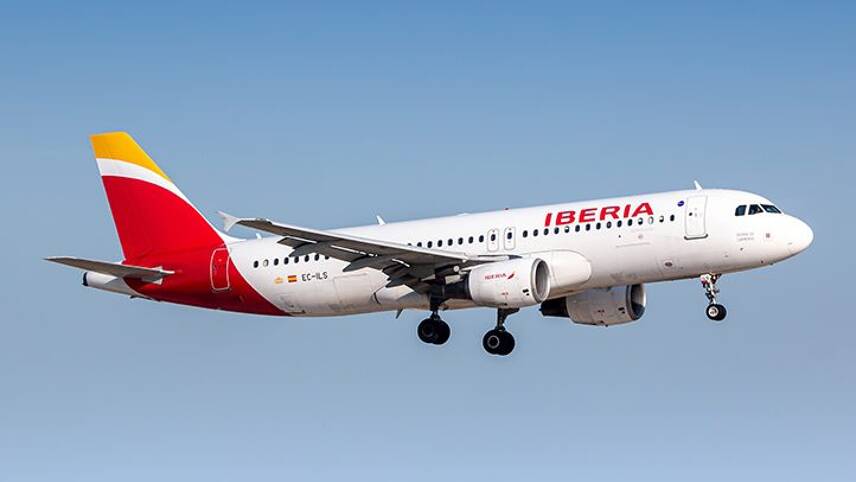Register for free and continue reading
Join our growing army of changemakers and get unlimited access to our premium content

As part of the IAG Group
The two Spanish firms will work collaboratively to explore how SAFs and other low-carbon flight innovations can be incorporated into Iberia and Iberia Express’s aircraft fleet.
Iberia Express’s chief executive Carlos Gomez said: “It is time to create synergies between companies that have the same objective: developing our business and operations while minimizing our environmental impact. This agreement is an important step on our path towards more sustainable air transport, in line with our joint commitment to the decarbonisation of the sector.”
As part of the IAG Group, Iberia and Iberia Express have committed to achieving net-zero emissions by 2050 This includes a target to operate a minimum of 10% of flights with SAFs by 2030.
It has not clarified the percentage of SAF blend it will use; current restrictions cap biofuel blending at 50%. However, it has said it will purchase a million tonnes of SAF annually from 2030, in a move that will reduce annual emissions by two million tonnes. The business’s existing SAF suppliers include LanzaJet and Velocys.
IAG had already pledged to spend $400m through to 2040 to develop SAF plants across the world. In the UK specifically, it is lobbying the Government to support up to 14 plants by 2030.
As for Cepsa, the Spanish energy firm is working on plans to decarbonize its organisation and has been producing biofuels at refineries for more than a decade.
Cepsa’s chief executive Maarten Wetselaar added: “This alliance illustrates our commitment to sustainability and our strong resolve to support our customers by providing them with viable solutions that accelerate their energy transition. As a leader in the supply of fuels to the airline industry, we share with the Iberia Group the common goal of promoting the decarbonization of transport as a tool in the fight against climate change.”
Complying flights
The companies claim that this new agreement will build towards the European Commission’s Fit for 55 package. This includes the RefuelEU Aviation initiative that aims to boost the supply and demand of aviation biofuels in the European Union to 2% use by 2025, 5% by 2030, and 63% by 2050.
The state of play for SAF in the UK is mixed. The technology has been supported by dozens of big businesses and with standalone funding from the Government.
However, some had been hoping for more Government funding and long-term support as part of the Covid-19 recovery package. Moreover, the UK’s first waste-to-SAF plant, spearheaded by Velocys, was dealt a blow last year after Shell pulled out of the venture. Shell said in a statement in January that it was exiting the project after agreeing to jointly fund another plant in Canada, which developers claim could produce more than double the fuel using less than half the waste. Velocys expects to begin producing fuel to the original timeline of 2025, without Shell.
Questions also remain about the extent to which SAF can reduce the aviation sector’s climate impact in line with the Paris Agreement. The UK Government’s Climate Change Committee (CCC) recommended that, along with SAF, more should be done to scale electric aircraft and to cap demand growth.
Most recently, nations and states representing more than 40% of global aviation emissions have committed to developing a new 1.5C-aligned joint emissions target. The announcements was made at COP26.
Matt Mace


Please login or Register to leave a comment.